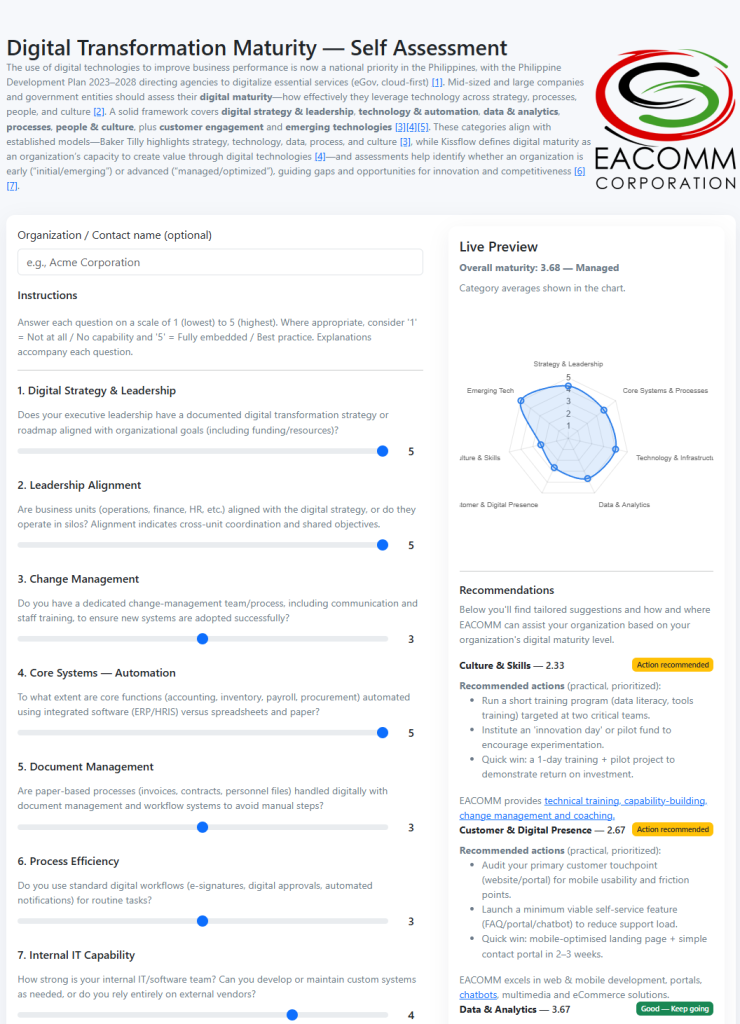Assessing Digital Transformation Maturity in Philippine Organizations
Digital transformation has become a national priority in the Philippines, with the Philippine Development Plan 2023–2028 mandating the digitalization of government services and encouraging private companies to adopt modern technologies. For mid-sized and large organizations, a key step in this journey is measuring digital maturity—how effectively an organization leverages digital tools, processes, data, and culture to achieve its goals.

To help, a 20-question Digital Transformation Maturity Questionnaire has been developed. It assesses readiness across six core dimensions:

- Digital Strategy & Leadership – Is there a clear vision, strategy, and budget for digital initiatives?
- Technology & Automation – Are business functions (finance, HR, procurement, etc.) automated with modern systems?
- Data & Analytics – Is decision-making backed by dashboards, KPIs, and business intelligence?
- Processes – Are workflows digital and automated, or still manual and paper-based?
- People & Culture – Do employees have the skills and mindset to embrace innovation?
- Customer Engagement & Emerging Tech – Are organizations adopting mobile, AI, IoT, and digital channels for clients and citizens?
Organizations can score themselves from early-stage (fragmented, manual, low buy-in) to advanced (integrated, data-driven, automated, and innovative). The results highlight where investments should focus—whether in upgrading IT infrastructure, building data capabilities, developing mobile apps, adopting AI, or enhancing customer-facing platforms.
How EACOMM Can Help
With over 20 years of experience in custom software, AI, IoT, and mobile/web development, EACOMM Corporation offers tailored solutions to address the gaps revealed by the questionnaire:
- Automation & Core Systems: ERP, HR/payroll, and document management solutions.
- Data & AI: Analytics dashboards, chatbots, and machine learning integration.
- IT Modernization: Cloud migration, cybersecurity, and IT staff augmentation.
- Mobile & Web Solutions: Employee apps, customer portals, and multimedia platforms.
- IoT Integration: Real-time monitoring systems for transport, logistics, and agriculture.
- Culture & Training: Consulting for digital literacy and change management.
By using this maturity model, Philippine organizations can pinpoint their digital strengths and weaknesses, and with the right guidance, move towards becoming truly digitally mature enterprises—capable of innovating, competing, and thriving in a rapidly evolving economy.